Oklahoma Christian University engineering and business students are using their skill sets to better the lives of others.
A team of four senior engineering students consisting of Josh Bilello, Aubrey Gonzalez, Preston Kemp, and Tyler Sriver began their work on the VisuALS system last spring.
Gonzalez said the project began last year when a group of students gained the idea from an Oklahoma Christian alum who had a friend suffering with ALS. The students then decided it was a viable option for an undergraduate student project. The engineering department adopted it into a senior capstone project, which lasts a year and a half.
“The cool thing about a small project like this is there’s a lot of autonomy, and especially with us as a student-run project, we can kind of do what we want with it,” Gonzalez said. “It enables us to directly interact with the people with ALS and make changes based on what they tell us.”
ALS is a progressive neurological disease, according to the Mayo Clinic, which destroys nerve cells and causes disabilities. As the disease progresses, the motor neurons responsible for voluntary movements and muscle control cease functioning or die. ALS affects roughly 14,500 Americans at any given time, according to the Mayo Clinic.
“This project interest me because I want to go into the medical field and it’s medically related,” Bilello, the VisuALS project team leader, said. “Going in, I thought it would be a good line for my resume to put down and talk about in med school interviews, but it’s become more than that in this past year and a half than I could have imagined.”
The eye tracker is able to follow a patient’s eye to various letters on a screen and type out messages from those with ALS.
“It has been such a blessing,” Gonzalez said. “For me, something that really excites me about this project that’s really unique is we get to directly see the impact our project can have on people’s lives. It’s the human side of engineering.”
Bilello said it’s been a life-changing experience for him to see ALS patients work with the project, while also having a chance to improve their quality of life.
“It’s no longer just a line on my resume,” Bilello said. “It’s not just an engineering project to me anymore, it has impacted me. It’s given me hope for them and myself. It’s really uplifted my spirits.”
Bilello said he entered the engineering department thinking it would mean sitting behind a desk all day writing code, but his involvement in the VisuALS project led him to realize how engineering is customer oriented.
“We have to realize that at the end of the day what we may want, as engineers, is not what should be on the project,” Bilello said. “What should be on the project, ultimately, is what the ALS patients want and need.”
The team uses monthly visits to ALS supports groups to receive feedback and allow people affected by ALS to test out the system. According to Bilello, these visits help them discover aspects to be added, removed or altered within the software to be more effective.
Bilello said for one year they did not have a beta tester for their project and were testing it on their own. In January of 2017, the team got its first beta tester, Carl, a man whose onset of ALS is to the point where he has lost the ability to type on a tablet to communicate with loved ones and needs a system like VisuALS as an assistive aid.
“Knowing we were able to get to know this guy’s lively and bright personality, even in the face of ALS, is cool,” Gonzalez said. “We only were able to get to know him because our system helped us talk to him. We were able to give the system to him for free.”
Before beginning their work on VisuALS, the members considered what would be necessary for individuals diagnosed with ALS. However,through testing the team realized how much its requirements did not meet the specific needs of ALS patients and what the team thought was needed, was not actually what they needed.
Bilello also said in the future he would like to see a couple of additions made to the VisuALS system.
“The ALS patients have requested voice banking,” Bilello said. “Voice banking would allow an ALS patient to meet with a speech pathologist, before they lose their speech, to record certain sounds so instead of the computer playing a Siri-like voice it would be their voice and would be personalized for them. I also want to see the system be capable of working on Apple systems as it currently only works on Windows-based devices.”
While the engineering team works on the VisuALS system, Russ McGuire, Oklahoma Christian’s entrepreneur in residence, is working alongside to turn the senior project into a business plan.
“The engineering students focused on the technology, and getting the software to work well,” McGuire said. “What was important for the bigger scope is what we’re trying to do, which is make this system available to thousands of people that can be helped by it. So we are figuring out how it can become a business.”
McGuire said one of his roles on campus is helping identify student business opportunities.
“Working with the engineering faculty through the senior systems projects is one of those key areas to do that,” McGuire said. “This is a project with potential to become a profitable business. I’m excited because of the impact we can have through this project. The business exists to help people who desperately need what this product can provide them.”
The business plan, based on the VisuALS system project, will be entered into the Love’s Entrepreneur’s Cup competition in the small business division. Senior accounting major Jevon Seaman was hired on to help create the plan for submission.
“As we started talking to the engineers about it and going over what the potential for the product was, it started growing from a project into a business,” Seaman said. “ For the engineers, this is their heart and soul. It’s really their project that I’m tacking on the business angle to and we’re creating a business together.”
Seaman said working on turning the engineers’ project into a business plan for the Love’s Entrepreneur’s Cup gave him an idea of how he can use his degree to benefit society.
“Especially as an accountant, people don’t usually associate it with benefitting society and I definitely thought that,” Seaman said. “But working on this project and seeing its impact on people’s lives and the potential impact it could have one day, it’s absolutely extraordinary. It’s helped me develop my skills, realize my major can impact the world and in my professional development as well.”
McGuire said the next two months will include the six students creating the 25-page document to turn into the competition on March 6. If the team is one of the eight semi-finalists, they will give an oral presentation on April 6. If they are chosen to advance from there, the final selections take place on April 7 for the Love’s Entrepreneur’s Cup.
“For everybody involved, it is a stretching opportunity,” McGuire said. “What we learn in a classroom is one thing and what it takes to actually launch a business is something else.”

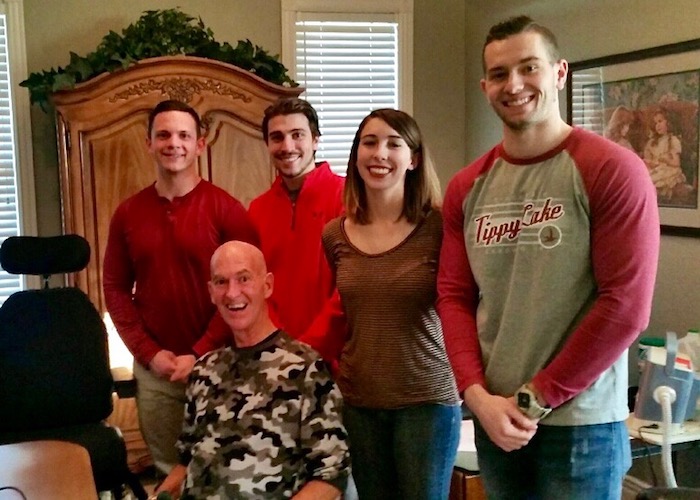









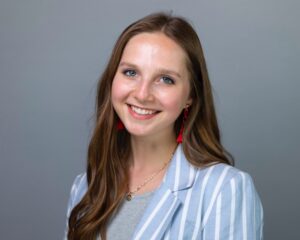
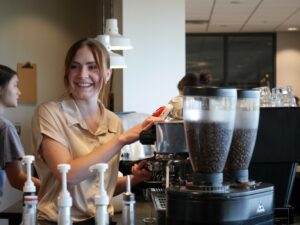
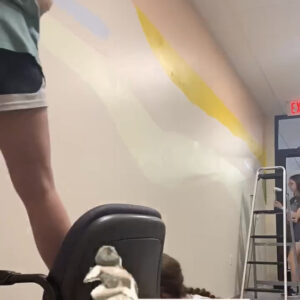
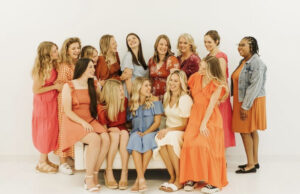

Be First to Comment